子宫切除术金标准外科治疗的适应症
子宫保守手术
- 肌腺症病变切除(ADENOMYOMECTOMY)和减积
- 子宫动脉结扎
- 宫腔镜切除, 消融
- 子宫肌层的电凝法
腺肌瘤切除
|
 |
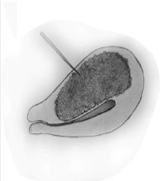 |
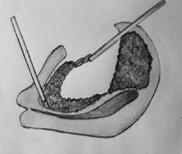 |
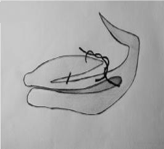 |
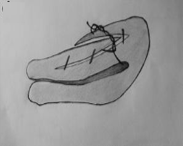 |
宫腔镜切除和消融
Hysteroscopic resection and ablation
- 不再希望生育但希望避免子宫切除术的患者
- 结果与子宫腺肌症深度高度相关: >20mm穿透病变效果差
- 子宫内消融术:
- 由于临床失败2%-21%的子宫切除术;
- 复发率33%
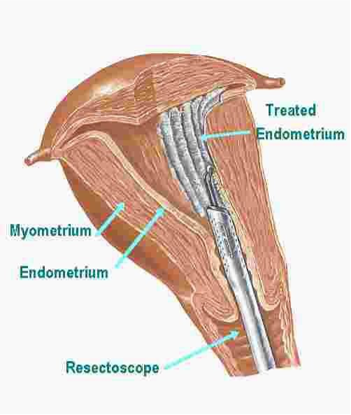
子宫肌层电凝
Myometrial Electrocoagulation
-
腹腔镜手术 Laparoscopic procedure
-
证据有限,需要进一步研究验证 Limited evidence – needs further studies for validation
-
保留给已完成生育的妇女:继发于子宫肌层强度减弱的子宫破裂的风险是显著的 Reserved for women who have completed child-bearing: risk of uterine rupture secondary to the diminished strength of the myometrium is significant
- 缺点:
难以精确应用和无法确认充分破坏,需要进一步治疗; difficulty with precise application and the inability to confirm adequate destruction, necessitating further treatment
由于无法控制的出血和粘连形成,有急诊子宫切除术的可能性 possibility of emergency hysterectomy for uncontrolled bleeding and adhesion formation


